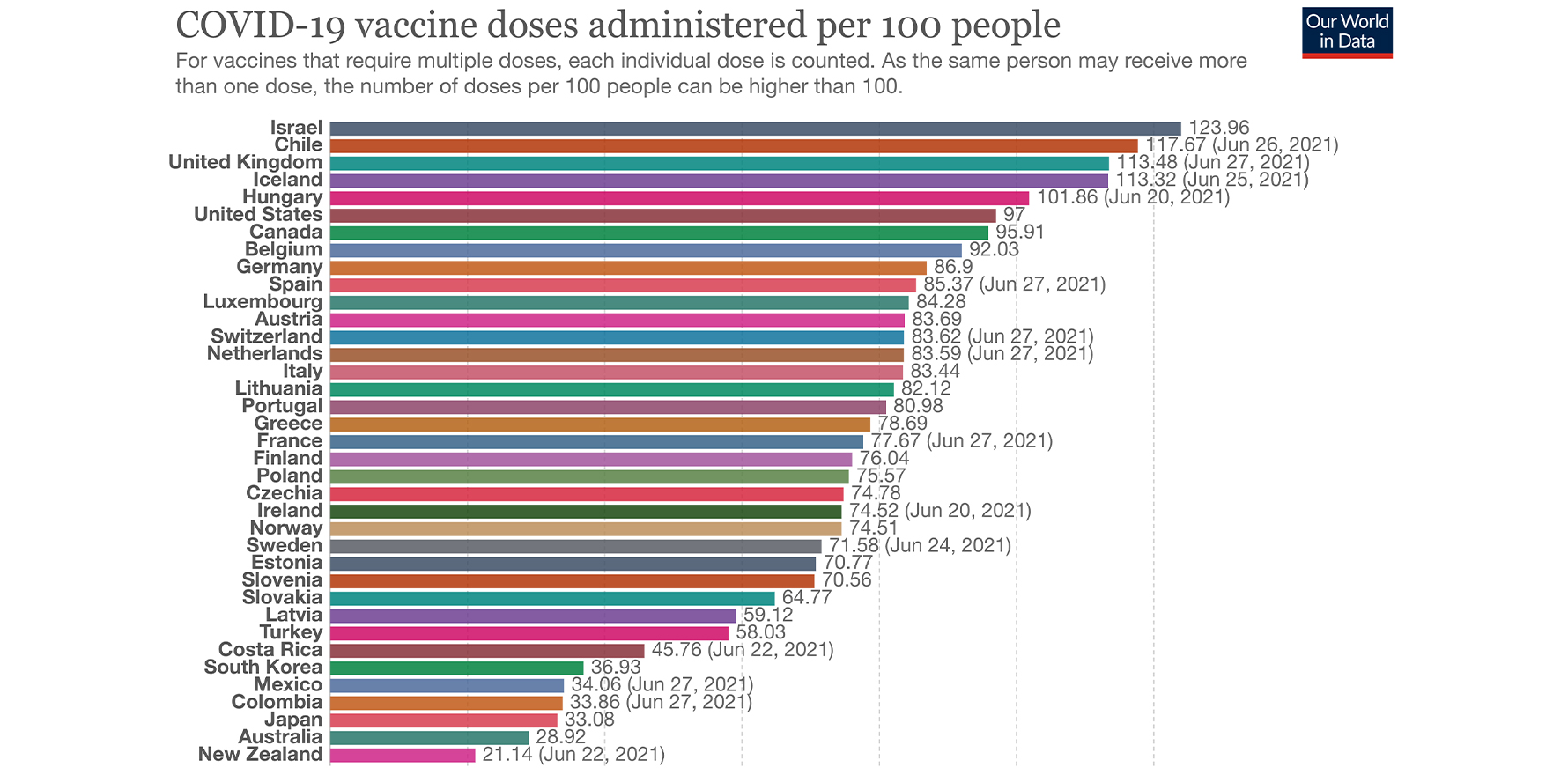The political reasons for Monday's announcement are fairly clear.
We follow the medical advice, has been a Morrison government mantra since the pandemic’s start.
Well, not any more. With the rollout struggling and half the country in lockdown, Scott Morrison is now encouraging younger people to get the AstraZeneca vaccine, despite the Australian Technical Advisory Group on Immunisation (ATAGI) not recommending it for the under 60s.
Morrison’s Monday night announcement of the government’s new position was quite a significant moment.
It marked a break with the experts in a move that, if it were to backfire, would leave the government facing the heat without the “shield” of its advisers.
One can understand why Morrison is going down this path. The government needs to get the population vaccinated much more quickly. We are at the bottom of the OECD with our rollout. There is plenty of AstraZeneca, which is home made at CSL, and limited amounts of the imported Pfizer, the vaccine ATAGI recommends for the under 60s.
The hugely infectious Delta strain is putting the fear of god into federal and state governments, and many in the public. The current lockdowns show how quickly activity can be semi-crippled even by small numbers of cases.
All this when the younger part of the adult population, the under 40s, aren’t yet even in the current vaccination queue.
However, the contradiction is obvious. After AstraZeneca was associated with rare blood clots, the government took ATAGI advice on who should receive which vaccine – AstraZeneca for over 50s, Pfizer for those under.
In embracing the ATAGI advice it knew it would be contributing to hesitancy about vaccination generally and AstraZeneca in particular, but it said it felt it had no option.
Then ATAGI became even more cautious and recommended AstraZeneca be given only to those 60 and above. The government accepted the revised advice, which was likely to make people even more suspicious of AstraZeneca.
When Morrison in effect parks his attachment to the experts and says to younger people, if you are so inclined just talk to your doctor and make your own decision about taking an AstraZeneca jab, the danger is the public become confused or cynical or both.
Heath Minister Greg Hunt on Tuesday explained things this way: “So the advice is very clear on two fronts. One is the medical advice; two is the access.
“AstraZeneca remains the preferred vaccine for people 60 years and over. That has not changed, the advice of ATAGI, and Pfizer is the preferred for people under 60. And the clinical advice of ATAGI, again, has not changed.
“However, as has always been the case … on the basis of informed consent, individual patients and their doctors have been able to make a decision to take up the AstraZeneca on the basis of their individual circumstances and their own judgement,” Hunt said.
“Some GPs have reported that they have excess supply [of AstraZeneca]. And so if there are people who wish to access it, via informed consent, via the existing ATAGI rules, then that’s simply being enabled.”
It might have “always been the case”, but now people are being actively encouraged by the government towards this independent position. Australian Medical Association President Omar Khorshid described the PM’s announcement as “a really significant change in the vaccine program”.
So a 30-year-old woman may find herself weighing the ATAGI advice and the advice of her doctor (who, incidentally, is being provided with a professional indemnity giving “additional certainty” to those advising on vaccination).
Who knows where she will land if the two sets of advice differ?
The AMA and the Royal Australian College of General Practitioners both said on Tuesday they hadn’t received advance notice of the government move.
Karen Price, President of the RACGP, tweeted: “Phones are ringing off the hook at GP clinics. We had no warning of last night’s announcements and this isn’t the first time this has happened to general practice. It’s vital that government provides significant support to GPs to implement these changes to the vaccine rollout.”
She said on 2GB if doctors were to operate outside the ATAGI guidelines “we need to be super clear about what that means”.
Khorshid told The Guardian, “It took us by surprise”.
“Our recommendation is still really for patients to follow the ATAGI advice. Be patient and have the ATAGI-recommended vaccine when it’s available. I am certainly still backing the expert advice at this stage.”
Khorshid said he thought the government had taken this step because it wanted “to provide nervous Australians who are going into lockdown this week with something that they can actually do to improve their chances of getting through this and to push the nation’s vaccination program forward”.
It will be interesting to see how ATAGI now reacts.
Meanwhile there must be questions about how the officials let the doctors apparently be caught on the hop.
Just as the “medical advice” has stopped (at least in this case) being sacrosanct, so criticism of federal health officialdom continues to sharpen over its operations in the rollout. It’s no coincidence that a military man, Lieutenant General “JJ” Frewen has been put in charge of trying to get the program on track.
The official medical and health experts are finding themselves a good deal more challenged by their federal political masters than a year ago.
Michelle Grattan, professorial fellow, University of Canberra
This article is republished from The Conversation under a Creative Commons license. Read the original article.
Main image from ourworldindata.org.


